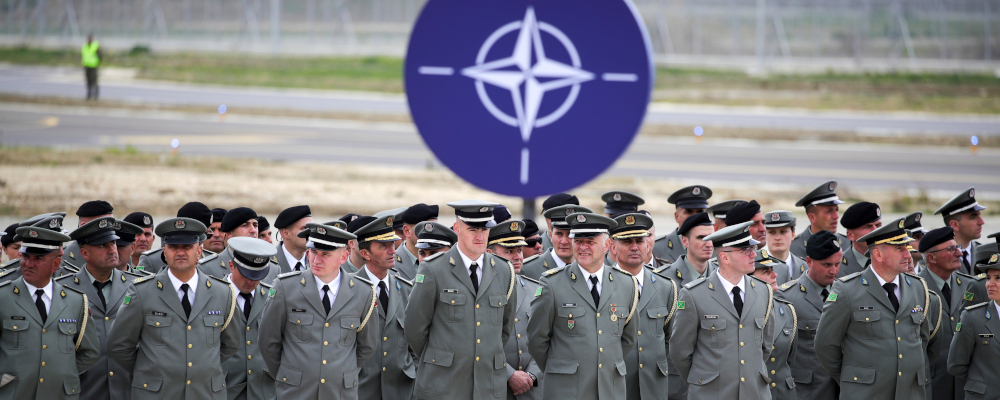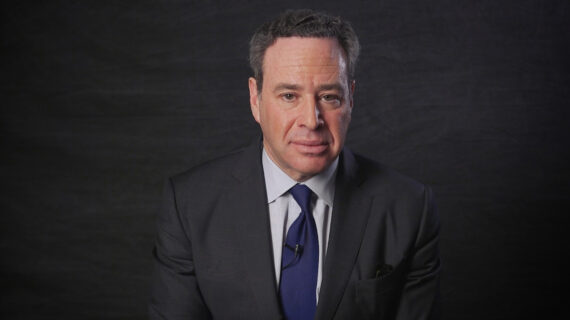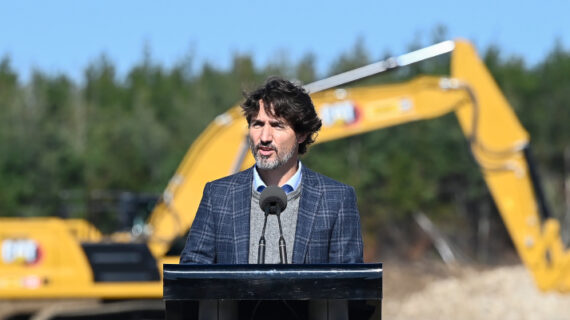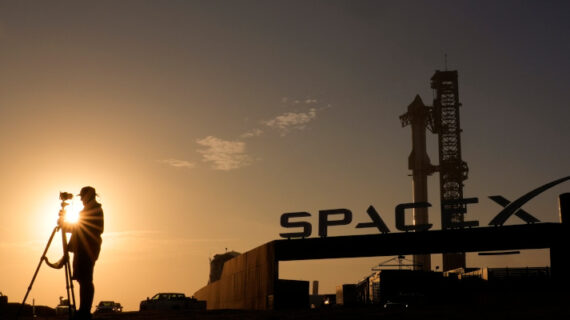This past week, April 4th marked the 75th anniversary of the signing of the North Atlantic Treaty, which serves as the Charter of NATO. The organization represents the high watermark of the post-Second World War institution-building efforts, which included the World Bank, the General Agreement on Tariffs and Trade (the forerunner of the WTO), and the European Coal and Steel Community (the forerunner of the European Union).
These were novel political innovations of their time—multilateral groups that sought to collectively organize policy action among states on specific areas. Their importance in shaping and protecting the global world order has been undeniable as these institutions have been instrumental in providing security and economic prosperity in Europe since the 1940s. NATO, in particular, has safeguarded the West during the most productive flowering of technological advancement and global wealth in human history.
At the time of its formation, Western European states were in an extremely vulnerable position. Germany was divided in two, while the others were exhausted economically, militarily, and even societally from the Second World War. The USSR held an overwhelming quantitative (and possibly qualitative) edge in standing forces across the European continent, and it had successfully installed Communist puppet regimes across Eastern and Central Europe. With the Czechoslovak coup d’etat in 1948, there was a palpable fear that the momentum would continue across Western Europe and envelope them.

The North Atlantic Treaty provided an institutional foundation upon which these states organized their military and political approaches to this existential threat. It was extremely effective to this end, providing a political forum to manage the crises that members faced while ensuring a common, unified front. It also became a way to build a more effective military capability between allied militaries by developing common interoperability standards and divisions of labour that avoided duplication of roles.
While the strategic and political situation has changed over its history, the alliance has adapted to new realities with varied success. This includes the detente and the Euro-missiles crisis of the 1970s, the aftermath of the USSR’s collapse and instability in the Balkans, 9/11 and the War on Terror, and, most pressingly now, Russia’s invasion of Ukraine.
It hasn’t all been smooth sailing. Some high-profile public leaders have even begun to question its future. The death of the organization is now proclaimed with some regularity. Overall, though, the alliance still stands today as a bulwark against those who would threaten the peace and stability of the democratic world order.
NATO has been at its strongest during periods when its members perceived the greatest threat, such as the early 1960s, the 1980s, and the September 11th attacks—still the only instance when Article 5 of the treaty, the collective defence clause, has ever been invoked. Russia’s annexation of Crimea in 2014, followed by its full-scale invasion in 2022, has once again revived the alliance and returned it to relevance. Yet the strength of this revival has been shaped by the decline of some of NATO’s older members and the rise of newer ones. It is worth unpacking these dynamics to get a sense of its future.
The United States
As it was at its creation and ever since the United States remains the core of the alliance and its most important state. Certainly, its military power remains in a tier largely of its own. The past two years have made this all the more apparent as Europe and Canada have clearly been unable to effectively mobilize their collective military capabilities to manage major security challenges. American leadership and its instruments of national power, particularly its military capabilities, are still critical elements to ensure security in Europe.
A parallel could be made to the 1990s and conflicts in the former Yugoslavia, or the fall of Gaddafi in 2011, where collective European action was hamstrung without American political and military support. In theory, NATO enables the U.S. to deploy a lighter footprint in Europe, freeing up its military forces for other contingencies in the Middle East or Asia.1For this to work in practice, though, requires European members to contribute credible military capabilities to the organization when required. The U.S. and NATO, can then, provide key enablers, such as command and control systems and suppression of air defence capabilities, which are critical for any collective action to occur.
Consequently, European “burden sharing” has been a core part of the U.S.’s policy towards NATO since its inception. During the Obama administration, the so-called Asia Pivot was predicated in part on European states taking more of a role in their security. In that respect, President Trump was not unique in his desire to exhort alliance members to spend more on their security; rather it was his tactless approach and threats to not honour the collective defence agreement that set him apart. President Biden came into office and made rebuilding the U.S.’s relationship with NATO states (and allies more broadly) a major priority of his administration. The expansion of DoD’s footprint inside of Europe, and expanded arms sales (including cutting-edge systems such as low-observable aircraft and advanced command and control systems) are all pillars of this renewed policy.
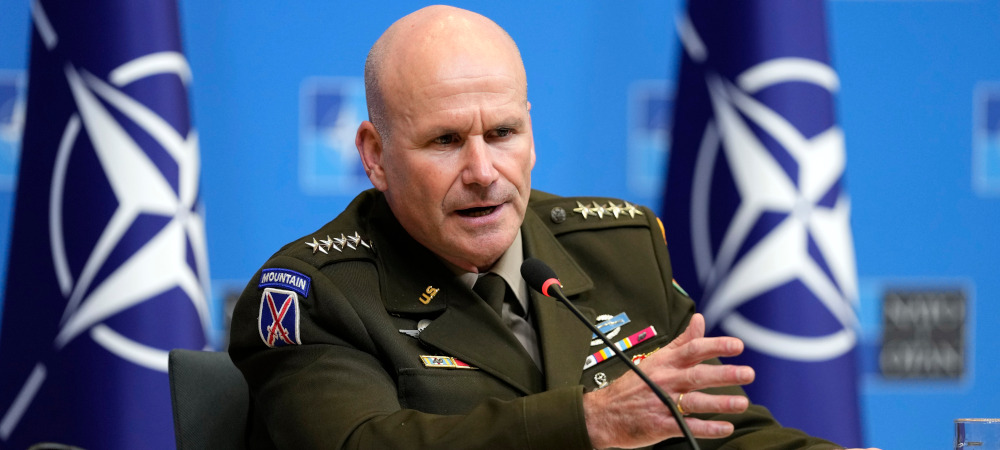
Yet the spectre of Trump winning a second term has pushed many European states to reassess their position, which has become apparent over the past months. The recent challenges U.S. legislators have had trying to pass a bill authorizing aid for Ukraine through the Republican-controlled House of Representatives have provided a potential preview of such a scenario. This has created a renewed impetus towards modernization and defence spending throughout the alliance.
While the U.S. occupies the preeminent position within NATO, the politics of other member states are also critical for understanding its current moment. After the U.S., “Old Europe”—to appropriate a phrase used by the late U.S. Secretary of Defence Donald Rumsfeld—has historically been highly influential within the alliance. The term roughly refers to states that joined during the Cold War, while “New Europe” is largely shorthand for members that joined after 1990 during various enlargement processes over the past thirty years.
Old Europe
At the time when Rumsfeld made his comment in 2003 and even up to a few years ago, Old Europe held disproportionate strength within the alliance. They were the wealthiest and possessed the most capable militaries within NATO outside of the U.S. Despite their historic importance and influence within the alliance, however, Old Europe’s influence has waned. The reasons are varied, but they are consistent with long-standing policy preferences within each state.
For instance, the United Kingdom’s position remains one where it attempts to reconcile its strategic and political position between Europe and the U.S. Mainstream politicians will talk of the U.K.’s “special relationship” with Washington, and NATO’s founding was a critical institution with which to manage the former Empire’s transatlantic identity. The alliance’s importance to London has only been heightened as a result of Brexit and its disappointing economic and political outcomes.
The deep, self-inflicted wounds as a result of its split from the EU have caused serious damage to the U.K.’s influence in Europe, forcing it to rely even more heavily on its relationship with the U.S.
Despite the situation, it is in defence and security policy where the U.K.’s Conservative Party has achieved some of its few noteworthy policy successes. Its strong response to the invasion of Ukraine, as well as the formation of AUKUS with the U.S. and Australia, has perhaps attenuated some of the damage coming out of Brexit, but it remains in a weaker state.
As with the U.K., NATO has always been seen as a critical aspect of Germany’s defence policy. This was obvious during the Cold War, as West Germany’s very existence was guaranteed by the alliance. NATO also provided a vehicle for Berlin to push forward defence issues in a multilateral forum, which suited it just fine given its constitutional limitations on foreign policy. Yet the past two years have reflected the other inherent impulses that have tempered Germany’s foreign policy. Pacifism has played a strong role, which has pushed Berlin to a conciliatory role in Europe’s relations with Russia since the late 1960s.
There has also been a strand of German politics that is ambivalent towards American foreign policy and leadership within the alliance. Russia’s 2022 invasion immediately undermined decades of policies overnight. Initially, Berlin seemed to have grasped this new reality and pivoted. It condemned the actions, seemed to have approved military aid to Kyiv, and authorized a major defence budget increase.
Yet these shifts have become less pronounced as the immediate shock of the invasion passed. Chancellor Scholtz’s coalition government has repeatedly dragged its heels during countless efforts to provide new systems.2Including Gepard air defence systems, Leopard 2 tanks, Marder infantry fighting vehicles, and, most recently, Taurus long-range missiles. This has led to much dismay and frustration from other allies. Moreover, the initial frenzy to spend on defence has been tempered, with questions about whether Berlin will be able to sustain funding above the 2 percent threshold. Germany’s timidity has essentially diminished its standing within the alliance and its influence among states.
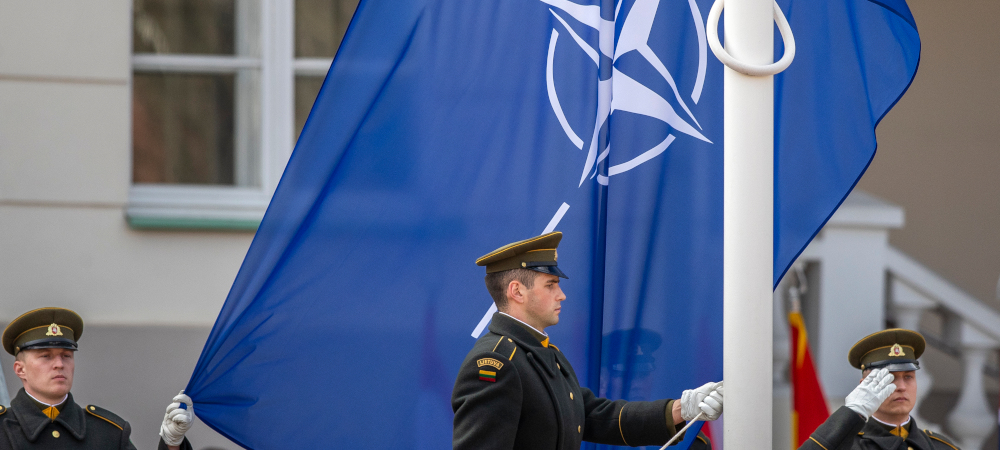
Germany’s failures have become France’s gain. Traditionally, Paris has been the most skeptical member of the NATO alliance. With designs to be a leading power in a resurgent Europe, France has chafed at America’s position of power within the alliance and its ability to affect European states’ foreign policies. As a result, Paris has frequently attempted to build up alternative institutions as a counterweight to NATO, the most important being the EU’s Common Security and Defence Policy.
The past two years have seen President Macron seemingly adjust key precepts of French foreign policy while still retaining its underlying character. For much of the first year of the Russia-Ukraine conflict, Macron has suggested that a negotiated settlement was required, something he has tried to broker. Furthermore, France has been among the less generous allies providing direct military aid to Ukraine and has also hindered some European-wide efforts, such as on joint-munition production. The latter was largely due to a preference to ensure its national defence industries do not lose out—a key leg of French foreign policy.
Yet some shifts are now apparent. President Macron has shown less reluctance to directly criticize Putin and Russia and employed more forceful language, seemingly repudiating some of his earlier positions. He has suggested that to want peace is not the same as to surrender, that Russian victory would become a major threat to European security, and that deploying ground troops should not be out of the question.
New Europe
There are likely a number of factors behind France’s policy shifts, but a major one surely has to do with a fundamental realignment within Europe and the alliance. While Old Europe has remained mired in the debates of old, New Europe has undeniably altered its character. Enlargement has moved the alliance’s geographic and political strength eastwards, towards the new member states. Moreover, these new members are economically dynamic and far more focused on their basic defence needs, with a strong preference for U.S. involvement in their security affairs. It should be noted that their position reflects the original policy dynamics that guided the creation of the alliance 75 years ago.
The clear leader in this regard has been Poland, which has made dramatic steps in expanding and modernizing its military capability. Last year it spent over 50 percent of its military budget on new equipment—a staggering figure when most NATO states only spend 20 percent on procurement. Similarly, a number of other states including, the Czech Republic, Romania, Latvia, Lithuania and Estonia, among others, have made significant efforts to beef up their defence efforts. They have been joined in this group by the two new entrants: Sweden and Finland, both of whom joined in the aftermath of the 2022 Russian invasion in order to better secure their sovereignty.
With their increased numbers, and growing military and economic clout, the members of New Europe have moved to flex their power. This was the dynamic Rumsfeld originally identified with the new/old Europe comment in 2003, perhaps prematurely. However, it is now evident in all aspects of European and allied politics.
Canada
For Canada, the realignment within the politics of NATO is at the same time an opportunity and a challenge. The growing strength of new Europe provides more avenues for Ottawa to build coalitions within the alliance, especially given the fairly cordial relations it enjoys with many of these states. However, its seriously deficient military spending and lack of capabilities are significant hindrances to developing its relationships. This is exacerbated by a lack of actual policy focus and followthrough by the government on major defence and security issues. At best Ottawa is a silent bystander, perhaps oblivious to grasp the shift, but certainly unable or unwilling to capitalize on it. Retaining this posture will ensure that Canada has less influence when major security issues emerge and are debated within NATO and other fora, ensuring its interests are not effectively addressed.
For 75 years, NATO has remained the preeminent security institution in Europe, and the past two years have only reinforced that. Its internal dynamics have shifted, with Old Europe’s power waning and New Europe’s gaining, and the injection of two new states has only invigorated the alliance further and renewed the purpose of all the member states.
While a potential second-term presidency for Donald Trump remains a spectre looming over its current debate, the moves and interests of European states to ensure their collective defence and security bodes well for its future. Canada desperately needs to come to grips with its own defence and security needs and find its footing within the shifting dynamics of the still incredibly integral alliance. For its own interests and security, yes, but for the betterment and defence of its allies too.

